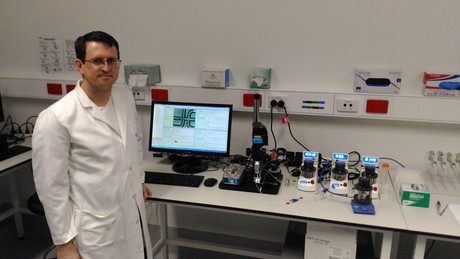Single-cell sequencing system tackles kidney research

Scientists at Monash University’s Epigenetics in Human Health and Disease Laboratory have adopted a Single Cell RNA-Seq System, from scientific instrumentation company Dolomite Bio, to further their research into animal models of diabetic nephropathy.
“Previously we’ve run bulk RNA sequencing on these animal models, and discovered a lot of variability coming from different cell types in the kidney,” explained Mark Ziemann, a research fellow and next-generation sequencing specialist in the lab.
“Single-cell RNA-Seq will help us disentangle the major cell types involved in the disease from those which are not, and determine which cells interact with the immune system. Given that this will be an ongoing focus of our research, we thought we’d invest in our own instrument for the benefit of the 65-strong department.
“We chose Dolomite Bio’s system because it’s open and flexible, offering us the possibility of looking at epigenetic modifications — such as single-cell chromatin immunoprecipitation sequencing and DNA methylation analysis — in the future. In addition, other systems we considered turned out to be a lot more expensive on a per sample basis.
“We considered developing our own in-house set-up, but committing to reliable chips and pumps from a single supplier ensures that there will be fewer problems down the line, and there’s always someone on the other end of a phone to help if necessary.
“A member of the Dolomite Bio team did a wonderful job providing training and installing the system in June and, by early August, we were already running samples. A recent species mixing experiment — sequenced on the Illumina MiSeq — enabled us to distinguish between human and mouse cells with very few doublets, which is encouraging. We already have a number of tissue analysis experiments lined up, and our system is working well.”
ADHD may be linked with an increased risk of dementia
An adult brain affected by attention deficit hyperactivity disorder (ADHD) presents modifications...
Placebos appear to reduce PMS symptoms
Women affected by premenstrual syndrome (PMS) appear to experience less intense and debilitating...
Medicinal cannabis linked to long-term health benefits
As scientists find a way to improve the effectiveness of CBD, a separate study shows that...




